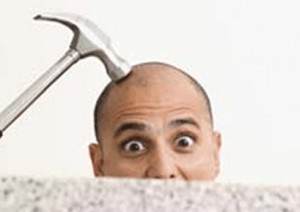Written after ShmooCon 2011…
I have a bit of an anti-social streak in me tonight. Since I’m at a hacker conference in D.C., some might say I fit right in. But then those people have a narrow, bullshit view of the hacker community.
For those not educated in the ways of the hacker crowd, you have the good guys, who break stuff so it can be fixed and made more ironclad so the bad-guy hackers can’t exploit the holes.
It’s just a reflection of the human race itself: You have good guys and bad guys; social people and anti-social people. I have a lot of friends in this particular circle. I write about what they do because it’s my job as a security journalist. But I identify with a lot of them on a much more human level.
Many of them have spouses and kids they love dearly, like me. Many of them have struggled with their own mental health troubles, like me. Some of them have suffered from addictive behavior, like me.
To pin someone as evil or anti-social because of their work is typical short-sighted thinking. Hackers get stigmatized, just like people with mental illnesses.
I’ve been thinking a lot about the anti-social stereotype recently because in some ways I can be anti-social. Some of you will say that’s stupid because you know the talkative me. But sometimes I get awkward in a crowd, especially a party crowd. A big reason is that I’m sober and it can be tricky getting comfortable around people who are not. Last night I actually did a pretty good job of socializing, but tonight I’m skipping the big conference party. I’ve had enough temptation for one week.
It gets equally strange for me in food situations, like the sushi fiasco I wrote about yesterday. I had a conversation with my sponsor about it the other day — the fact that when you can only eat and drink certain things, it’s nearly impossible in a public setting not to display some level of anti-social behavior. If everyone in a room is eating and sucking down cocktails, the guy who isn’t eating or drinking sticks out like a wart-encrusted nose.
Adding to the awkwardness is the knowledge that people in recovery can take it so far that the program itself becomes an addiction. And when that happens, you can be one anti-social bastard.
I’ve been on a tirade about the latter group in recent weeks. But when I’m surrounded by the stuff I binged on, I can see why “recovery addicts” are the way they are. Better to approach recovery like an addiction than to go back to the junk that destroyed you.
But there’s a silver lining.
When I was a slave to my addictions I was as anti-social as you could possibly get. I preferred hiding indoors and avoiding people. I was a mess and I looked the part. I didn’t want to be seen. I hid in my room and never noticed as the place started to stink from the discarded food bags and cigarette smoke.
I lived in Lynnfield, Mass., for a couple years and I had a room that was cut off from the rest of the house, with its own bathroom. I’d let the towels pile up and grow mold. I’d cut my hair or shave my beard and leave whiskers in the sink for days. When Erin and I first started dating, that bathroom was a place she didn’t particularly like being in. Why she stuck with me after seeing the filth I lived in is beyond me. Thank God she did, though.
Today, even though I feel anti-social when I’m the sober one among folks who are enjoying alcohol, I’m still in a much friendlier place than I used to be.
I’m also lucky at events like this because this crowd understands where I’ve been and they put effort into making me feel welcome.
That’s right. Hacker types making an effort to put me at ease.
That has to surprise some people. But as you know, some people are badly under-educated about certain cultural circles. The hacking circle is one of them.
Maybe this confuses you. It confuses me, too.
I should go to sleep, but fuck it. I’m going to go downstairs and take another crack at being a little less anti-social.













